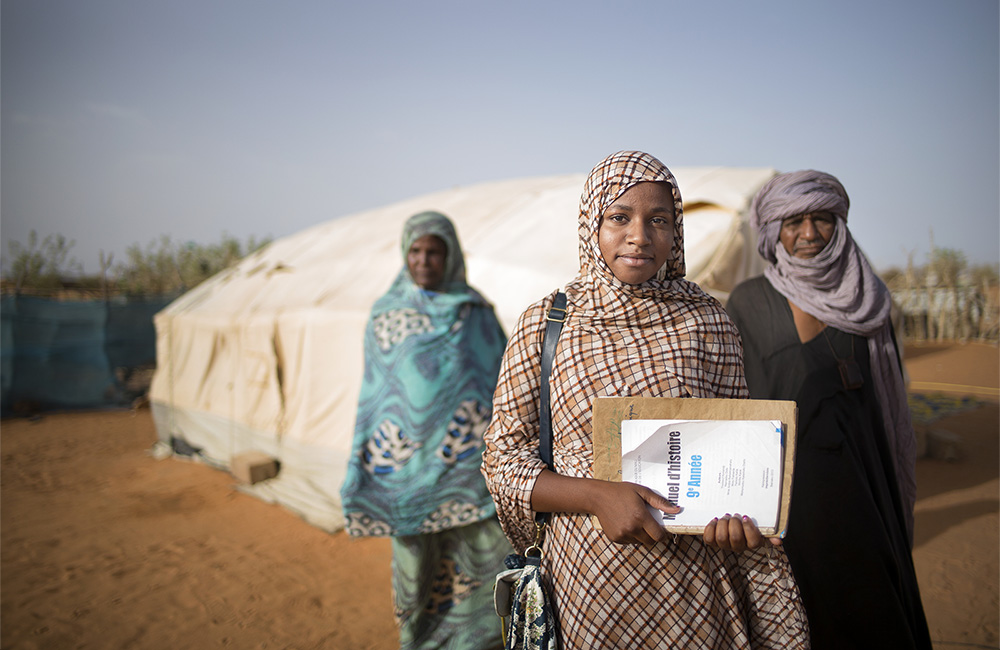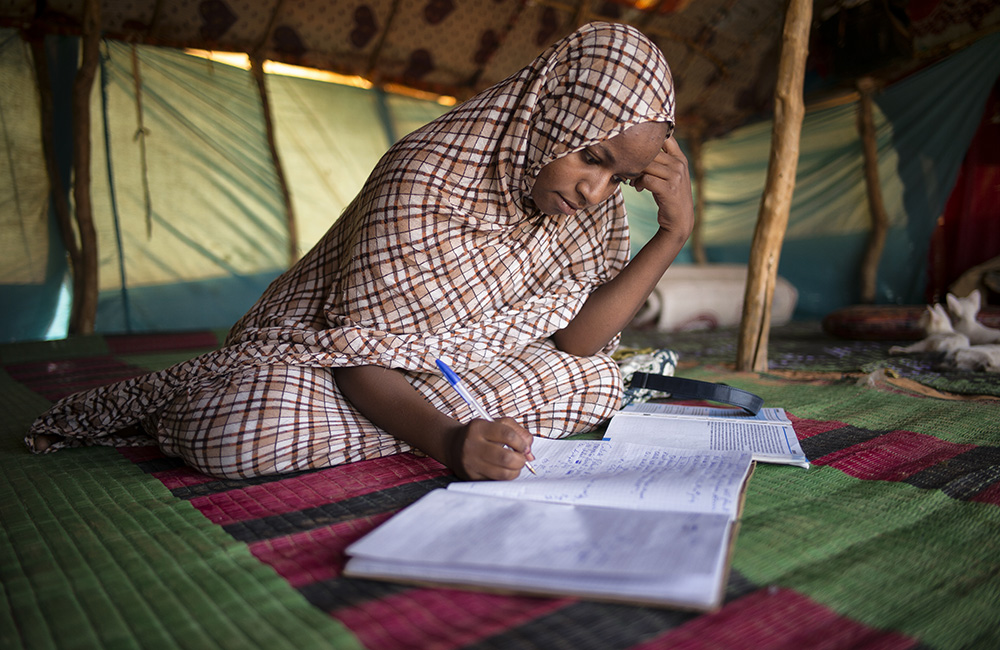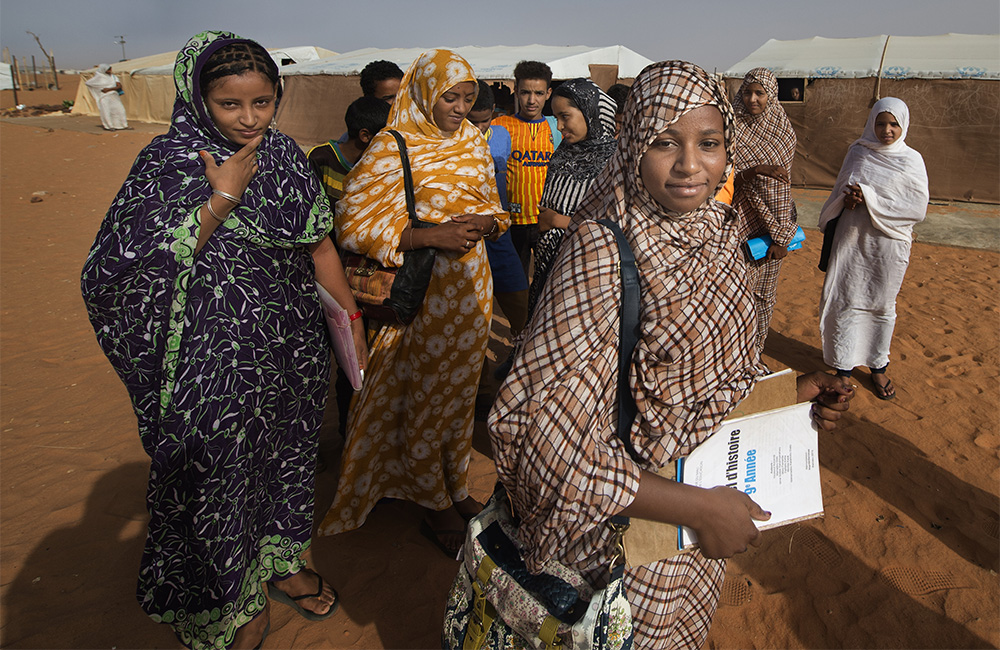Tinalbarka wants to be a lawyer.
She and her family fled violence in Mali.
Tinalbarka, 16 year old: “I am 16 years old. I come from Mali. My family and I fled Bamako because of war. So we arrived here [in Mbera, Mauritania], where I now live with my parents. Fortunately, here I had the opportunity to study as there are schools in the camp. I enrolled in school and I am now attending class nine. What I wish for my future is to successfully complete my studies so that I can get a degree and have a chance to find a job.”
“I dream of becoming a lawyer because I wish to help innocent people who are prosecuted for crimes that they have not committed.”
Sixteen-year-old Tinalbarka has become a school ‘champion’ and a role model among her peers at Mbera refugee camp in Mauritania. She belongs to the Tuareg nomadic tribe from northern Mali. Despite peace agreements signed in 2015, the situation in northern Mali remains volatile. Following ethnic clashes, her family had to flee their home once again.
Illiteracy is still widespread among the nomadic population of the camp, especially girls. UNHCR is working to sensitize families about the importance of sending their children to school, as well as providing literacy and numeracy courses for adults. Following the recent “Education for All” and “Girls inclusion” campaigns, the percentage of girls enrolled in the six primary schools at the camp is now almost equal to that of boys.
As part of camp’s education campaigns, Tinalbarka performed a sketch about a girl who is determined to go to school against her parents will. Unlike her sketch, her father, the well known musician Amano Ag Issa, supports her dreams of one day becoming a lawyer. To support Tinalbarka and female education, Amano and his traditional Tuareg music group, Tadiazt, will hold a concert in Nouakchott on World Refugee Day 2016 to promote girls education.
Written by Helena Pes
Show your solidarity with refugees like Tinalbarka by signing the #WithRefugees petition today.
Did you like Tinalbarka’s story? Share it with your friends!
Primary education plays a key role in UNHCR’s self-reliance building strategy in Mbera camp. Since the onset of the refugee crisis, supporting refugee children’s access to education emerged as a priority in order to avoid a “lost generation”. Thanks to this programme many families who did not have access to education in the country of origin, are now able to send their children to school and enjoy access to learning opportunities for adults.
Since 2014, UNHCR and partners have set-up canteens in every primary school, the competitive recruitment of 112 teachers, the increase in their indemnities and awareness-raising campaigns for parents and children, the number of children enrolled in the six primary school of the camp increased from 3,716 children as of mid-2015 to 4,696 as of 31 March 2016.
More stories
Solaf survived the war in Syria.
She loves sports and dreams of living in America.
Mojtaba escaped from Taliban violence.
He dreams of finding a cure for cancer.
Carmen fled violence in Colombia.
She hopes to inspire other women through her work.









